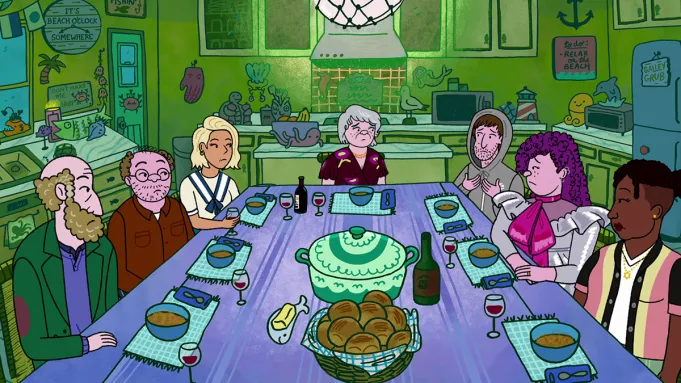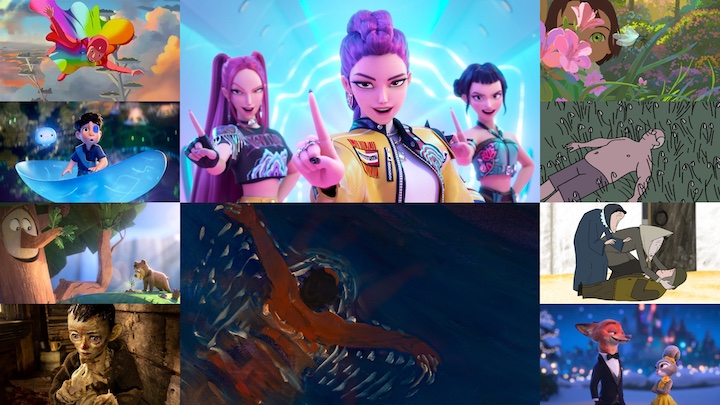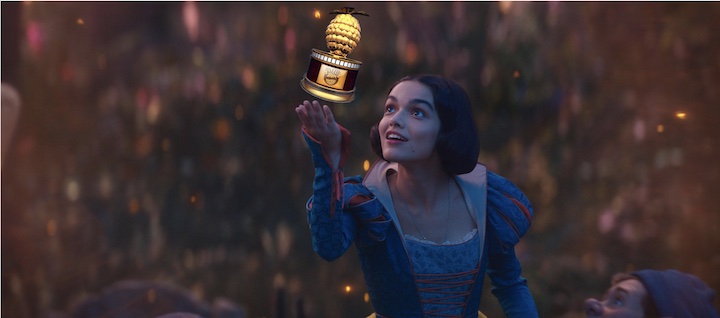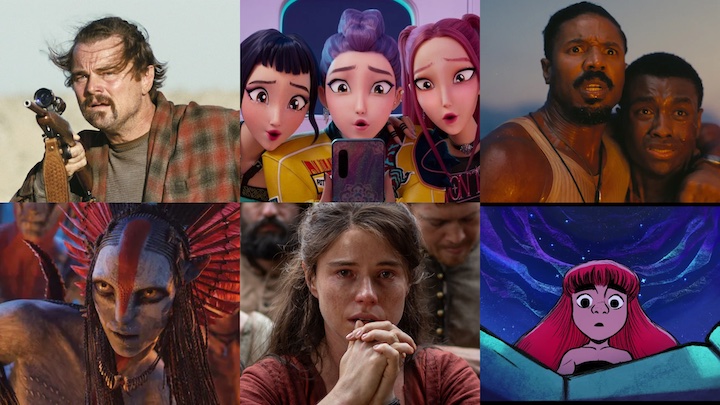A website dedicated to animation, awards, and everything in between.

Credit: Long Story Short (Netflix)
BoJack Horseman might not have received as much fanfare as House of Cards, Orange Is the New Black, or even Hemlock Grove when it arrived on Netflix just over a decade ago. By its second season, though, BoJack was not only gaining a reputation as one of TV’s most underrated shows, but one of the funniest, saddest, and most poignant. “Really? The cartoon with the horse?” is the response I’d often get whenever recommending BoJack Horseman to friends. To that, I’d say something along the lines of, “The writing is unparalleled, the comedy naturally blends with the tragedy, and Will Arnett’s performance rivals only Bryan Cranston in Breaking Bad as the best of the century.” Funny how both have Aaron Paul as a sidekick.
Five years after BoJack ended, creator Raphael Bob-Waksberg returns to Netflix with Long Story Short. In some respects, this animated sitcom is a significant departure from BoJack. There are no humanoid animals and minimal inside baseball on the entertainment industry. Yet, Bob-Waksberg’s signature is all over Long Story Short, from the visual gags to the fast-paced dialogue. In this case, the dialogue goes by so quickly that characters talk over one another, almost sounding improvised. Both shows also have a dysfunctional family in common. Of course, every family is dysfunctional, whether they know it or not. There are varying degrees of dysfunction, however.
Naomi Schwartz (Lisa Edelstein) and Elliot Cooper (Paul Reiser) are saints compared to BoJack’s parents. Eldest Avi (Ben Feldman), only daughter Shira (Abbi Jacobson), and youngest Yoshi (Max Greenfield) are less self-destructive than BoJack. That doesn’t mean the “Schwooper” family isn’t carrying trauma from break-ups, loss, repressed emotions, Jewish guilt, and an overbearing matriarch. Similar to This Is Us, the show chronicles this family’s lives throughout the decades, telling their story out of order. This adds something of a mystery angle, gradually filling in the gaps as we learn how one character died, why two characters got divorced, and when another character converted to Judaism.
The stories expand to the kids’ significant others, too. This includes Avi’s gentile wife Jen (Angelique Cabral), who has felt like an outsider ever since attending Yoshi’s bar mitzvah. Shira’s wife Kendra (Nicole Byer) has an easier time integrating into the family, despite not being raised in a Jewish household. Kendra takes center stage in one of the season’s standout episodes, exploring her demanding job in the cutthroat world of… children’s play centers. My favorite of the bunch, though, is Yoshi, whose naive business ventures and After Hours-esque misadventures call Todd Chavez to mind. Then again, Yoshi has his own Todd in his slacker friend Danny (Dave Franco).
Bob-Waksberg created BoJack Horseman after moving to Los Angeles, reflecting that point in his life to an extent. Something similar can be said about Long Story Short, which mirrors his past and present. Bob-Waksberg was also brought up Jewish. It wouldn’t be surprising if the show’s exploration of the Jewish community and identity was semiautobiographical, although Bob-Waksberg probably didn’t become a mattress-in-a-tube salesman like Yoshi or attend a school overrun with wolves like Avi’s daughter Hannah (Michaela Dietz). He did recently become a father, though, with parenthood being another key theme.
Cartoonist Lisa Hanawalt reteams with Bob-Waksberg, although her character designs here differ from the ones in BoJack or Tuca & Bertie. The show’s aesthetic is closer to a comic strip like Peanuts. Fitting, as Avi, Shira, and Yoshi almost feel like grown-up versions of Charlie Brown, Lucy, and Linus. Avi is neurotic, introverted, and balding. Shira is bossy, although not quite as much as her mother. Yoshi is the baby of the family, but surprisingly spiritual. The minimalist backgrounds are reminiscent of UPA shorts as well, with some characters blending into the scenery and others dominating the foreground.
Like BoJack Horseman, Long Story Short walks a fine line between comedy and drama. The first episode emphasizes the former, but as we learn more about this family’s history, the season develops an overarching pathos. The eighth episode, “The Intervention,” isn’t exactly what it sounds like. With the episode being set in the year 2019, though, we know that the pandemic is just around the corner. So, when two characters part on what might be their last words to each other, you can’t help but weep over the unresolved turmoil.
Compared to the first season of BoJack, Long Story Short doesn’t have as many laugh-out-loud moments. Dramatically, there isn’t an episode quite on par with “Downer Ending,” a turning point that presented BoJack in an entirely new light. Yet, the season lives up to Bob-Waksberg’s past work while still being a unique, personal entity. It’s cleverly written, passionately performed, and identifiable for anyone who comes from a boisterous family, Jewish or not. Where BoJack found relatability in absurdity, this show is simply relatable. Long story short, it’s a slice of life lived to the fullest.
Nick Spake is the Author of Bright & Shiny: A History of Animation at Award Shows Volumes 1 and 2. Available Now!




